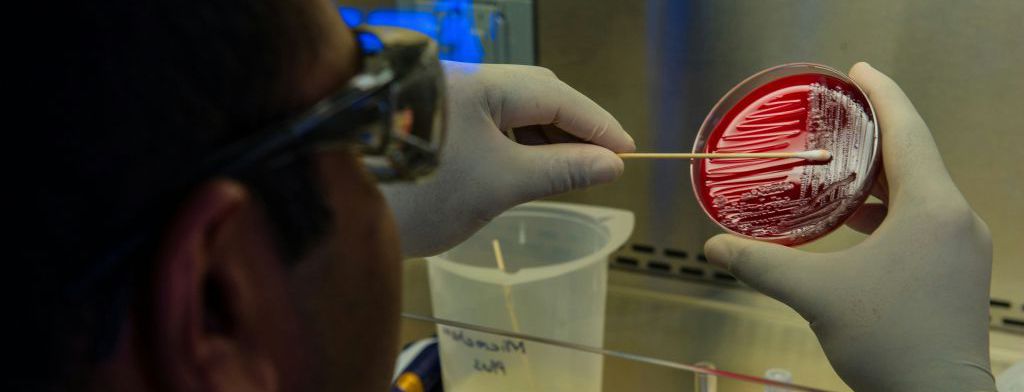
Training grants offer graduate students resources to add additional techniques, approaches, and knowledge to their skillsets by establishing new and deeper collaborations with other center members. The One Health Microbiome Center is actively pursuing training grants from various funding agencies to support specialized Microbiome Sciences.
Active Training Grants
The Biotechnological & Integrative Opportunities in Microbiome Sciences (BIOMS) Training Program is an NIH-funded predoctoral training program dedicated to training graduate students in the microbiome sciences and its biotechnological underpinnings. BIOMS is designed to equip students with the skills and knowledge needed to advance microbiome biotechnology, research, and education through a One Health lens. BIOMS will cultivate an understanding of fundamental concepts in microbiome sciences through requirements spanning coursework, monthly workshops, weekly seminars, and professional development experiences including a biotech internship, mentorship from industry scientists, and workshops focused on science communication.
Applications are due July 11th, 2025.
Apply here.
The Animal Reproductive Microbiomes training grant is supported by a five-year, $238,500 award from the United States Department of Agriculture’s National Institute of Food and Agriculture (USDA NIFA) to establish a graduate training pipeline in reproductive microbiome research as it relates to animal livestock and insect pests. The program began recruiting applicants from the animal science, entomology and integrative and biomedical physiology graduate programs in January 2024. Selected fellows have the opportunity to expand their training and research on links between microbes and reproduction.
Future fellows will explore topics spanning the impact of the microbiome on fertility, pregnancy outcomes, lactation, hormone and neurotransmitter synthesis, sperm-egg incompatibility, pest control applications to curb insect-borne diseases and other health-related factors.
The training program—which brings together multiple Huck centers and University academic departments—will include participation in the College of Agricultural Sciences' Dual Title Graduate Degree in Microbiome Sciences program, research, extension, and outreach activities—leveraging faculty expertise in both reproductive biology and microbiome sciences.
The grant is a collaboration between faculty at the OHMC and the Center for Reproductive Biology and Health. Francisco Diaz, associate professor of reproductive biology and director of the CRBH, serves as director and lead investigator of the program.